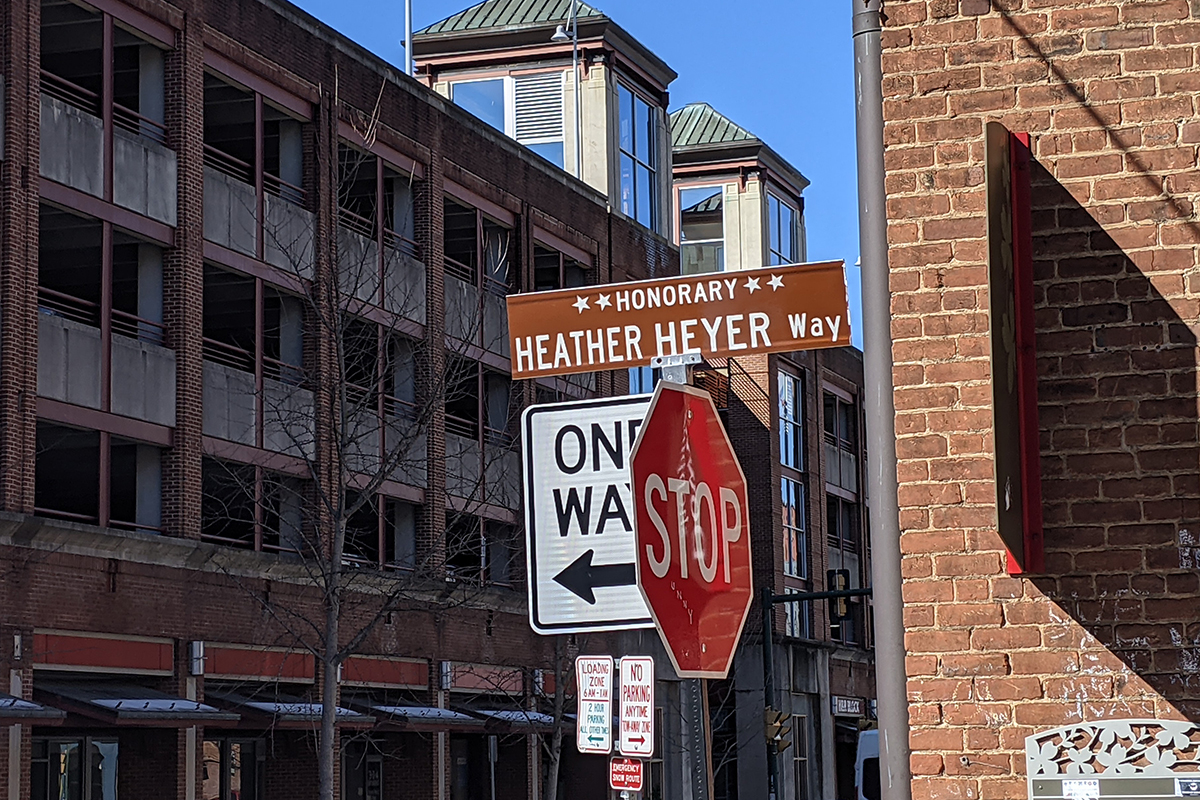Sign of the times
After months of debate over Charlottesville’s honorary street name policies, City Council unanimously approved two requests last week recommended by the Historic Resources Committee: Black History Pathway and Byers-Snookie Way.
Black History Pathway, located on Fourth Street NW between West Main Street and Preston Avenue, pays homage to the city’s rich Black history. It will cut through a former Black neighborhood known as The Hill, which was razed—alongside Vinegar Hill—during urban renewal in the 1960s.
Meanwhile, Byers-Snookie Way, located on 10th Street NW between Preston and Henry avenues, will honor Black community leaders, William “Billy” Byers and Elizabeth “Mrs. Snookie” Harrison. After becoming Charlottesville’s first Black aquatics director in the 1980s, Byers helped create the school division’s swim program, teaching many low-income Black children how to swim. Harrison worked alongside Byers and managed the Washington Park pool for decades.
Out of the dozen proposals sent to the HRC last fall, the committee also recommended that council approve street names honoring Black activist Gregory Swanson, enslaved laborer Henry Martin, and Charlottesville’s sister city Via Poggio a Caiano, Italy.
The committee turned down requests for Tony Bennett Way (and Drive), largely due to the UVA men’s basketball coach’s “previous substantial national and community recognition.”
However, council decided to hold off on approving additional proposals until March. The HRC is also still ironing out the details of the honorary street names policy.
The committee recommends waiving the application fee, substituting the application’s essay section with simple short questions, allowing applicants to choose between a temporary or permanent street marker, requiring two to three letters of support per nomination, and providing historical context on honorary street signs and a website.
To better handle future honorary street name proposals, the committee advises City Council to create a special naming commission that includes members from related committees.
__________________
Quote of the week
“We’ve come to a strong compromise that reimagines our criminal justice system…to provide a clean slate for Virginians who have paid their debt to society.”
—Virginia House Majority Leader Charniele Herring (D-Alexandria) on the passing of legislation automatically sealing the criminal records of people convicted of certain misdemeanors
_________________
In brief
City offers rent relief
The City of Charlottesville has distributed $181,000 in rent relief funds in recent weeks, according to City Councilor Michael Payne. The program, initiated to combat the effects of the pandemic, was put together in a short period of time and has already helped 467 local households.
Credit where it’s due
Charlottesville Commonwealth’s Attorney Joe Platania has confirmed that Mayor Nikuyah Walker is not under criminal investigation for her use of city credit cards. Speculation about a possible investigation arose in recent weeks after acting City Attorney Lisa Robertson sent a memo to City Council reminding the mayor that “Even a small unauthorized purchase can have serious legal consequences.” However, Platania wrote in a February 22 letter that he has long been “extremely concerned about the lack of consistency and clarity surrounding the city’s credit card policy,” and that he won’t prosecute any cases of potential violations until the policy is rewritten. The credit card policy is just another thing on the already long to-do list of new City Manager Chip Boyles.

Picture this
Earlier this month, the Virginia House of Delegates voted 99-0 to make the “dissemination of unsolicited obscene images of self to another” a misdemeanor—in other words, they made it illegal to send dick pics without consent. Seems like a no-brainer, right? Well, not to the Virginia Senate, where eight male senators in a 14-person subcommittee killed the legislation, citing constitutional and enforcement concerns.
